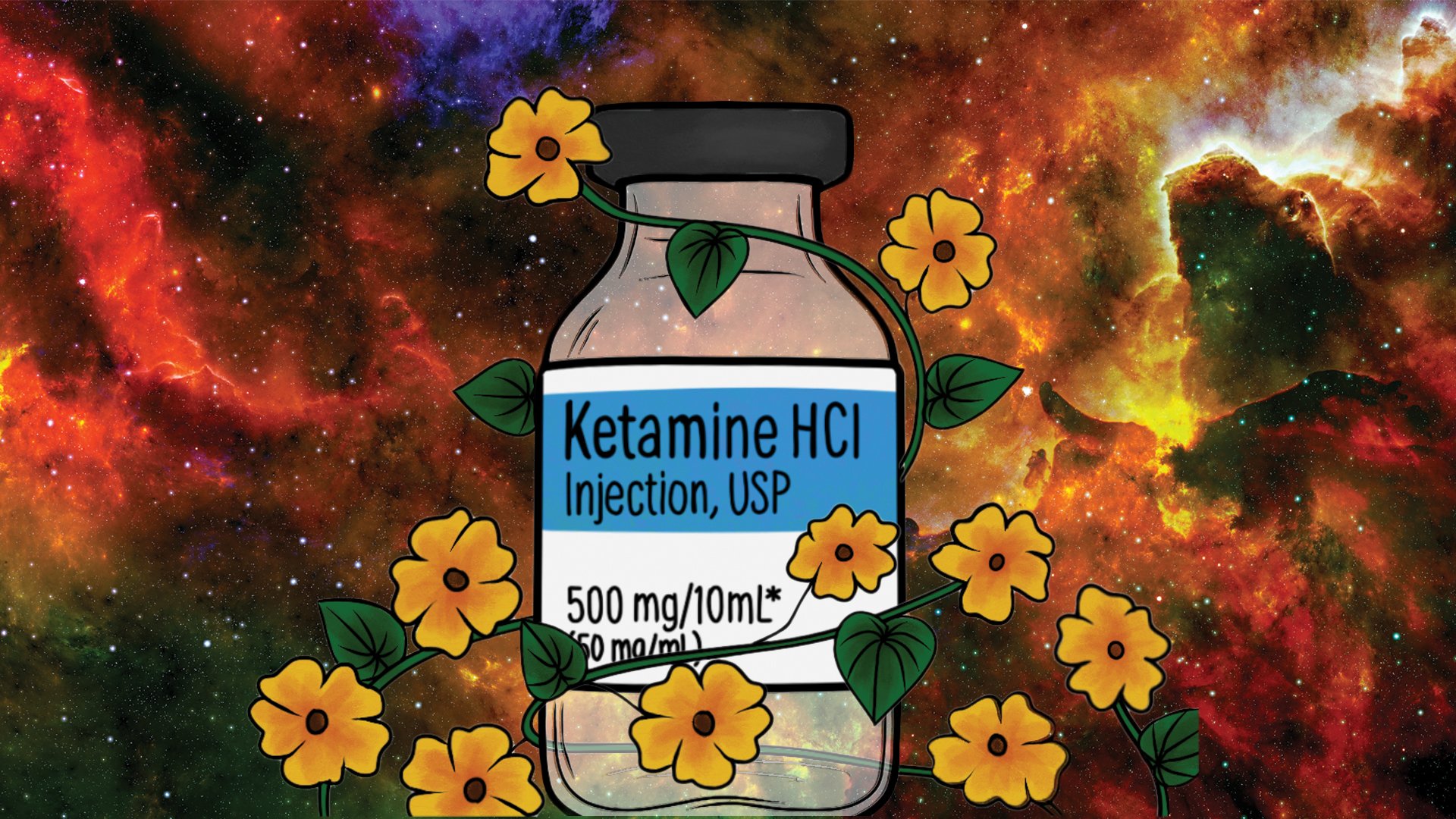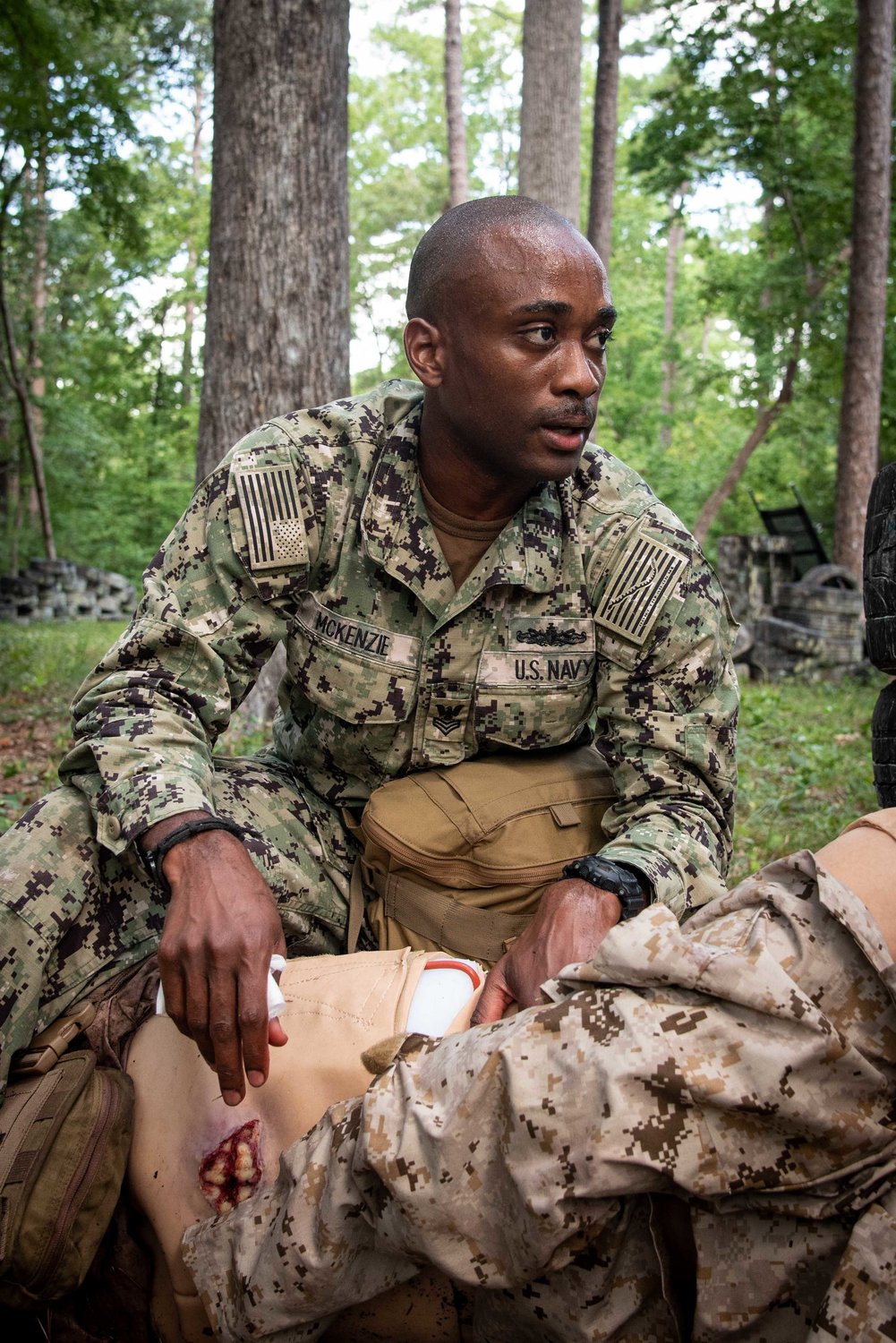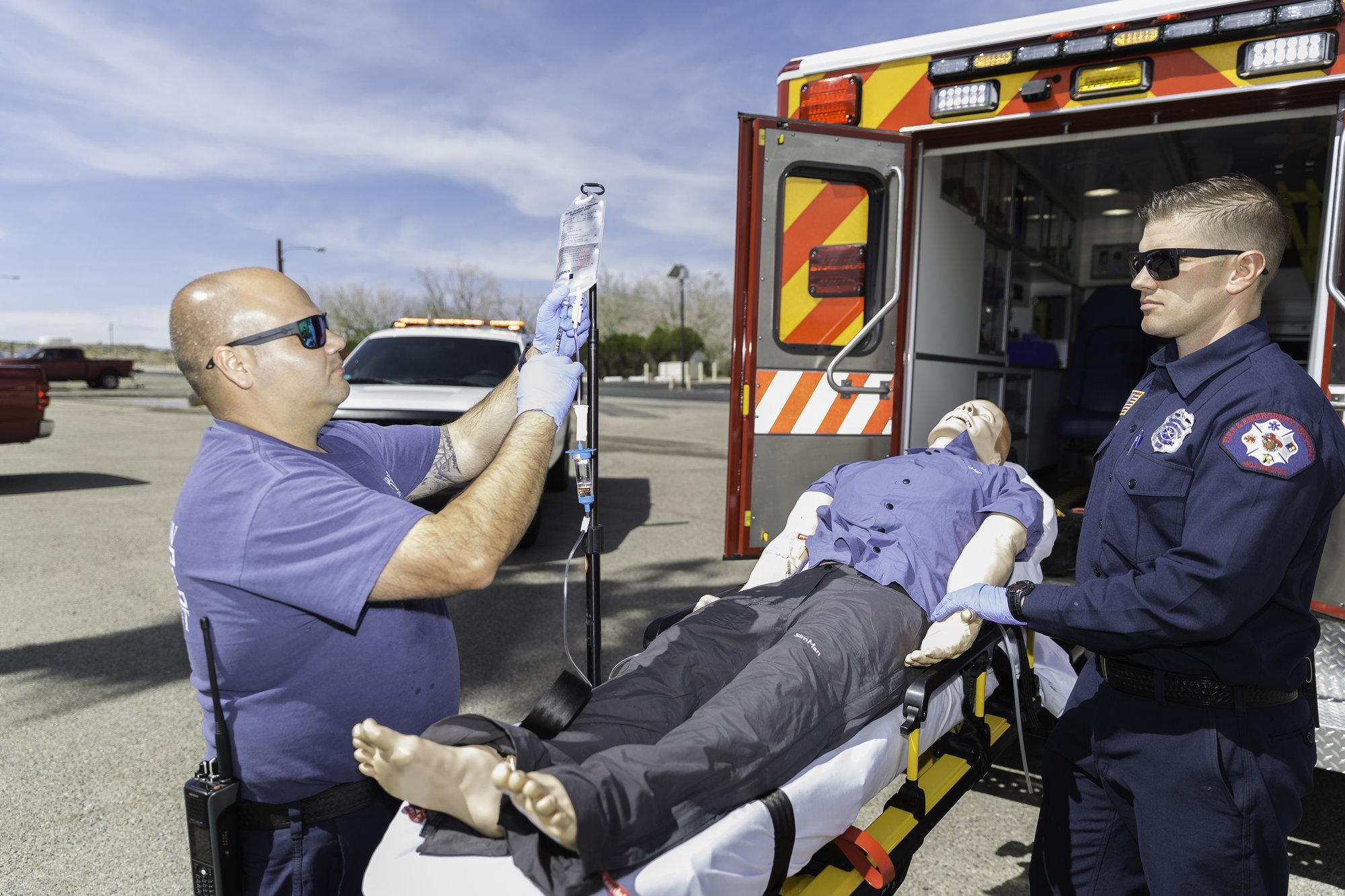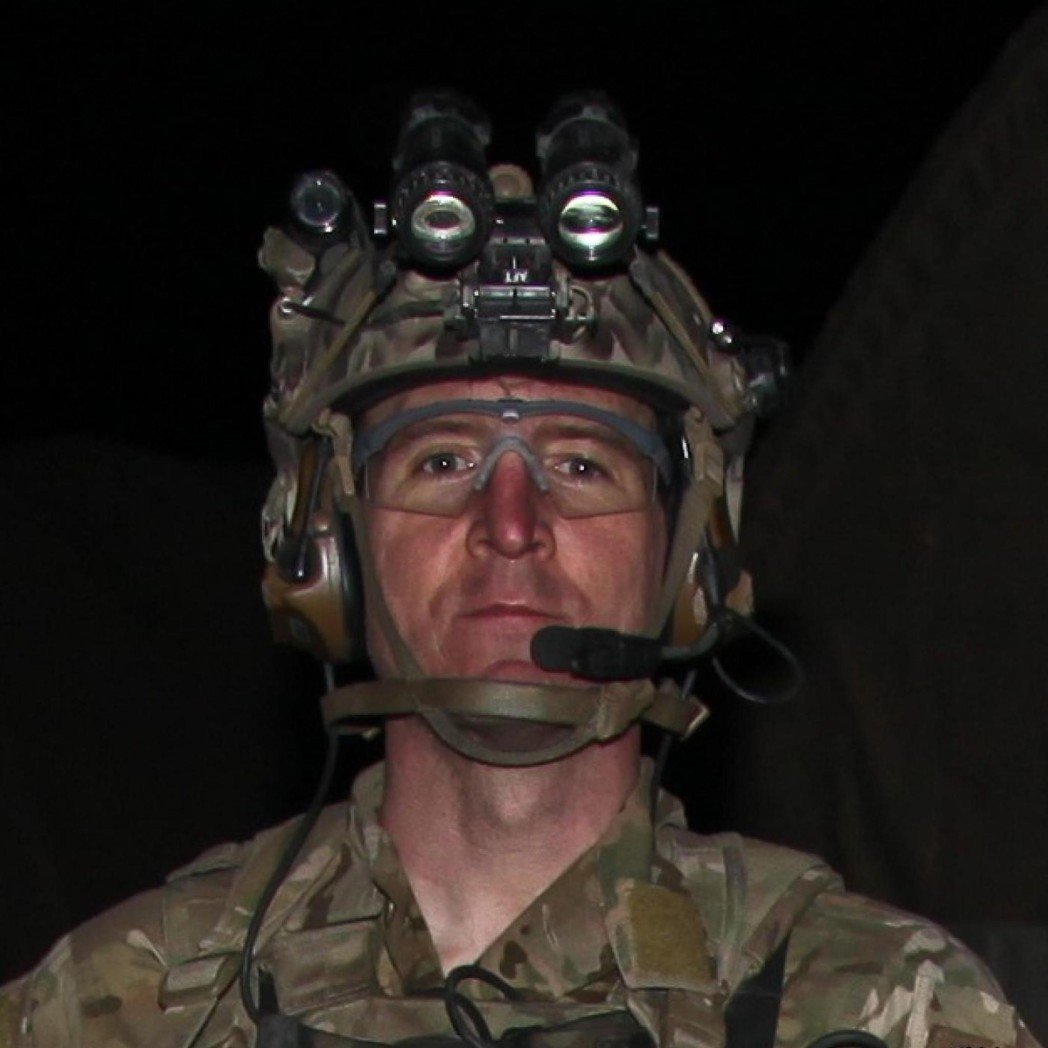Doc’s Corner: What If We Could Treat PTS Before It Occurs?

Illustration by Kenna Milaski
Most veterans of the Afghanistan and Iraq wars know what post-traumatic stress is and how it is typically treated: medications, counseling, and behavior modifications. But what if we could treat PTS before it occurs, curing through prevention, even for those injured in combat?
There have been a few studies that have demonstrated that providing pain relief at the point of injury can reduce PTS. These studies mostly evaluated opioids and how PTS rates developed. Opioids present real battlefield problems, however: They can lead to low blood pressure, decreased heart rate, and decreased breathing rate, all of which can be fatal to battlefield casualties, who are nearly always losing blood.
But the use of ketamine — a dissociative drug that is used as anesthesia for surgery — has increased in the field for both military and civilian medicine over the last 10 years. And information is emerging that it may be of genuine aid in preventing PTS.
Ketamine is already in use to treat chronic PTS and depression symptoms with good outcomes, though it was not developed for psychiatric use. Ketamine induces surgical anesthesia through an IV, as opposed to the inhaled gas common to many hospital operating rooms. Unlike opioids, which can be administered with set-dosage pills (or even lollipops!), ketamine must be administered and supervised by well-trained personnel. In lower doses, ketamine provides analgesia, relieving pain. At higher doses, it can induce amnesia.

Hospital Corpsman First Class Clement McKenzie and other sailors assigned to Naval Health Clinic Cherry Point conduct a practical exercise as students in Tactical Combat Casualty Care, a course designed to sharpen their battlefield medicine skills during a training event held Aug. 4, 2022, aboard Marine Corps Air Station Cherry Point. The use of ketamine — a dissociative drug that is used as anesthesia for surgery — has increased in the field for both military and civilian medicine over the last 10 years. US Navy photo by Thomas Cieslak.
When used at the point of injury rather than in the operating room, ketamine may have positive long-term psychological effects.
A recent study from the Naval Health Research Center looked at service members who received either pre-hospital ketamine or pre-hospital opioids and who were eventually diagnosed with PTS. Those who had received pre-hospital ketamine had lower rates of PTS. The study was limited to those without head injuries, though a plurality of those with head injuries who received ketamine were not diagnosed with PTS.
Interestingly, those in the ketamine group tended to be more severely wounded than those who just received opioids — a reasonable expectation, given that military medics who carry ketamine in the field are trained to give it to those more severely wounded because of the drug’s broad safety profile and lower risk of causing blood pressure and breathing rates to drop.
Though ketamine’s effect on memory is linked directly with its anti-PTS usage, some believe the amnestic effect provides better protection against PTS.

Carlos Torres, firefighter-paramedic, and Kevin Craven, firefighter-emergency medical technician, both with Fire and Emergency Services, demonstrate the use of a ketamine mixture for pain management on potential patients for an upcoming test trial aboard Marine Corps Logistics Base Barstow, California, April 5, 2018. Marine Corps photo by Jack Adamyk.
In my own case series on the use of ketamine for pain management in combat, we saw a significant decrease in rates of PTS in severely wounded casualties who received ketamine when compared to casualties with similar injuries who didn’t receive ketamine. What many of us saw occurring anecdotally for years now has some credible evidence to support it.
Is ketamine safe? Almost always, the answer is yes. Retrospective studies in children and adults have demonstrated that inadvertent overdosing, even up to 100 times the intended dose, does not result in any side effects.
Many combat medics and corpsmen are not given access to drugs like ketamine while deployed, never mind for home station training. A change in mindset within the military medical system needs to happen in order to put ketamine in the hands of medical personnel so that they can use it to treat wounded service members and decrease the rates of PTS.
This article first appeared in the Summer 2022 print edition of The Forward Observer, a special publication from Coffee or Die Magazine, as "A Dose of Prevention: Ketamine and PTS."
Read Next: Doc’s Corner: How Do You Pack a Wound?

Dr. Andrew D. Fisher is a graduate of Texas A&M University College of Medicine and is currently a general surgery resident at the University of New Mexico School of Medicine in Albuquerque, New Mexico. He served in the US Army as a physician assistant assigned to the 75th Ranger Regiment prior to medical school where he pioneered the use of whole-blood transfusions at the point of injury, and contributed to research for the utilization of low titer O-negative whole blood in trauma.
BRCC and Bad Moon Print Press team up for an exclusive, limited-edition T-shirt design!
BRCC partners with Team Room Design for an exclusive T-shirt release!
Thirty Seconds Out has partnered with BRCC for an exclusive shirt design invoking the God of Winter.
Lucas O'Hara of Grizzly Forge has teamed up with BRCC for a badass, exclusive Shirt Club T-shirt design featuring his most popular knife and tiomahawk.
Coffee or Die sits down with one of the graphic designers behind Black Rifle Coffee's signature look and vibe.
Biden will award the Medal of Honor to a Vietnam War Army helicopter pilot who risked his life to save a reconnaissance team from almost certain death.
Ever wonder how much Jack Mandaville would f*ck sh*t up if he went back in time? The American Revolution didn't even see him coming.
A nearly 200-year-old West Point time capsule that at first appeared to yield little more than dust contains hidden treasure, the US Military Academy said.












